CONSERVATION CORNER
A weekly blog for all things conservation
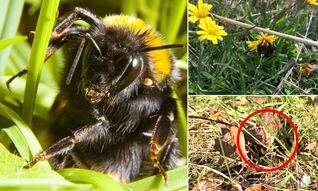 Isaac Walker, BCCD, Ag Resource Specialist As we enter a stretch of warmer weather, one thing is on a lot of people’s minds. Mowing the lawn. I know that I’ve been thinking about it too, as parts of my yard get taller and taller while others stay relatively short. While it may be tempting to get out there and mow on the first day that the temps reach 70 degrees, I’d like to provide you with some information and hope that you consider waiting before firing up the mower early this year.
0 Comments
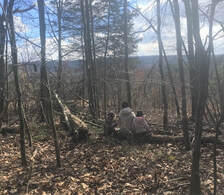 by Ryan Reed An article reprinted from Forest Fridays, a DCNR publication. Roughly 17 million acres of Pennsylvania are covered by forests; approximately one third of which is publicly accessible. We should all be thankful for these facts for so many reasons, including benefits of clean air and water, wildlife habitat, recreational opportunities, and so many more. One reason to be thankful for forests, which I don’t often encounter in things I read, is much less quantifiable and admittedly abstract, but I would bet that many readers feel the same. I think I speak for many of us when I say that I’m thankful for our forests for the sense of wonder they inspire.
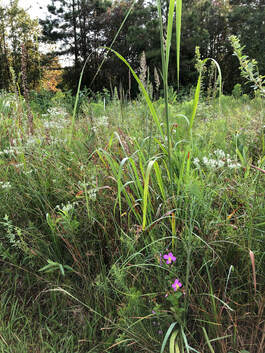 By: Kevin Brown, Agricultural Team Leader Are you one of those homeowners that have very difficult areas to mow? A bank? A ditch? A wet area? Around trees and obstacles in the lawn? Have you evaluated all the alternatives (not that there are really that many) to deal with this? We could still find a way to get it mowed. This alternative keeps it looking good, but it takes some effort. We could just let it go, and who wants to do that? It looks ugly (to us), right? Or we could just spray it and kill what is there. That sounds like the easiest way to deal with it. No hard work. You only have to do it once (probably). However, do you understand all the ramifications with this option? I am not going to get into the debate of whether sprays are harmful to the environment or not. That is for another time. What I do want to do is give you some cold hard facts about some of the results of doing this. 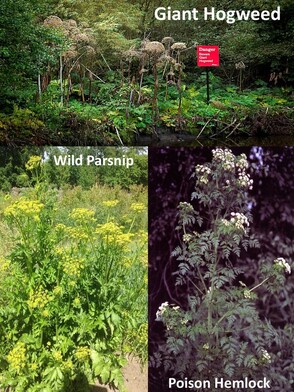 By: Dan Rhodes, Education Coordinator In many cases, we here at the Conservation District frown on making blanket statements that describe surprisingly beneficial native wild plants as weeds when they often have important roles to play in the environment. A ‘weed’ plant after all is simply a plant growing on the landscape where it’s unwanted from a human perspective. Many beneficial wildflowers such as goldenrod, New England Aster, jewelweed, ragweed, boneset, Joe-Pye weed, daisy flea-bane and many others, are often removed by private property owners without hesitation in favor of ornamental flowers and plants they deem to be more aesthetically pleasing. The problem with this kind of thinking is that these so-called ‘weed’ plants are incredibly important sources of highly nutritious food for wildlife like deer and as sources of nectar and pollen at critical times for pollinators like honeybees. This all being said, there are dozens of species of invasive plants that are NEVER going to be beneficial in any scenario if they are found growing in Bradford County. 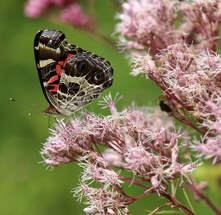 Reprinted from Forest Fridays- a DCNR publication. by Ryan Reed, Natural Resource Program Specialist, Bureau of Forestry. Just a few years ago the topic of Colony Collapse Disorder (CCD) was at the forefront of natural science and media inquiry in Pennsylvania. CCD is the term applied to the sudden deaths of entire honeybee colonies, many of which are domesticated hives. The phenomenon of CCD portended the potential for massive losses of food production capability, as domesticated bees (through pollination) are responsible for a reported one-third of all the food we eat. CCD has no doubt affected food supplies and cost. Research points to multiple reasons for CCD, suggesting a synergistic effect between these factors, which include chemicals like insecticides and herbicides, parasitic mites and other pathogens, and loss of habitat.  Reprint from Forest Fridays, DCNR newsletter. By: Ryan Reed, Natural Resource Program Specialist, Bureau of Forestry. The term “weed” has a very negative connotation in the eyes of most gardeners and horticulture professionals. Merriam-Webster defines a weed as “a plant that is not valued where it is growing.” I’ve spent countless hours, with many a subsequent back ache, pulling weeds in my gardens. They grow relentlessly it seems, and every spring I know the task begins anew. 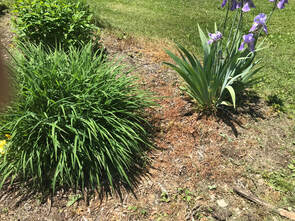 By: Kevin Brown, BCCD, Ag Team Leader We had a meeting at the Fire Hall a couple weeks ago where we talked about no till gardening, stormwater control, rain barrels, rain gardens, pollinators, and the like. At the end of the meeting, one of the attendees came up to me and had a story about a neighbor spraying their “weeds”. It reminded me of a couple stories that I had that were very similar. His story went like this: He is a farmer and he uses herbicides. He has neighbors that have various opinions on sprays. We all do. He tries to be as conscientious as he can be with what he is using. He needs a license to use them, he has to go through training, and he knows any herbicide he is using as well as anyone can. He has a neighbor that is anti-Roundup to the max. Some people are. Is it media or facts? I don’t know, and it is not the reason for the article. For this person, sprays in general can be used, but Roundup is (insert your worst verb or pronoun here). As he was working his field one day, he witnesses his neighbor come out with their sprayer, fill it, go spray “weeds”, and come back to refill. They do this maybe 3-4 times before he decides he needs to go talk to this person. As he is asking about what they are doing, they tell him that “at least it is not Roundup!!!”. He asks to see what they are using, and how much. He informs them that the amount that they had already used probably could have done an entire field, not the little, tiny area that they had covered. The response was, “But I want it DEAD (GONE)!!!”. So, Roundup is bad, but putting 10x the amount of herbicide needed on an area is ok??? (And not the right spray for the job either) I have had the exact same conversation with other people, and I would be remiss if I didn’t share at least a couple of comments on this topic. 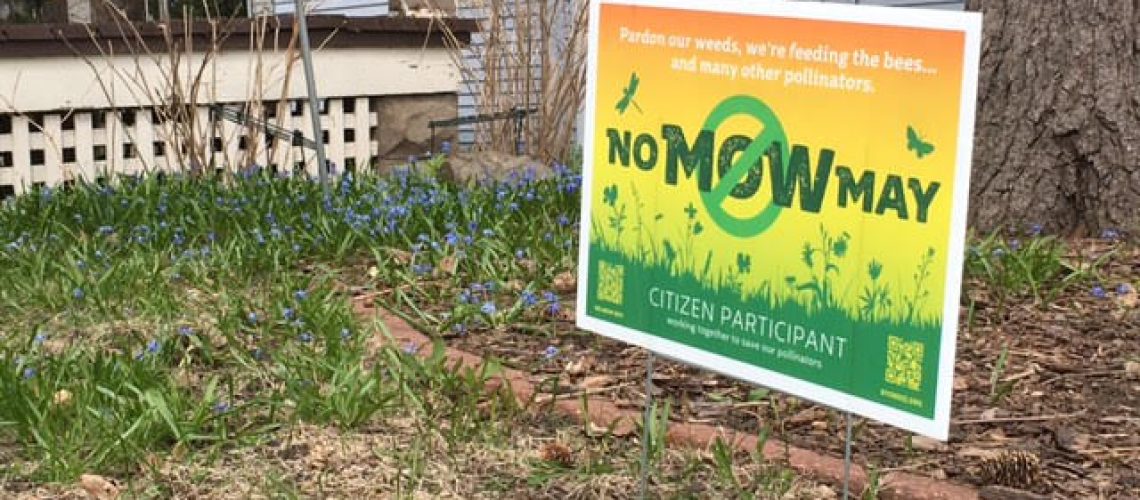 From Kevin Brown, BCCD -this is a reprint from an web article I saw the other day. It hit home after I was mowing lawn the other day and was concerned of the number of honeybees that would not leave their flowers, even if I slowed way down, and went through the mower. Bees are already in huge decline without us killing even more this way. What is the answer? Authors: Alex Schultz, Co-Chair of Pollenablers–Fox Cities, Bee City USA Appleton Israel Del Toro, President of Appleton Pollinator Project, Bee Campus USA Lawrence University The Appleton Bee City USA affiliate group, Pollenablers-Fox Cities, and the Bee Campus USA affiliate group, Appleton Pollinator Project, teamed up in 2020 to launch the United States’ first No Mow May initiative, an import from Great Britain’s Plantlife organization. The basic tenet of the program being the voluntary delay of early lawn mowing for the month of May increases spring pollinator habitat and foraging opportunities as early flowering grasses and sedges are allowed time to blossom and provide an essential boost of energy for pollinating insects. 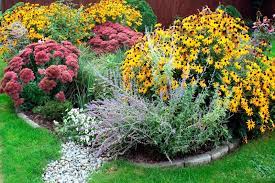 Kevin Brown, BCCD, Ag Team Leader I will call it this for lack of a better term right now. The Conservation District will hold a meeting this Saturday, the 14th, to talk about a number of outdoor, around-the-house topics. We get a lot of interest in our No-Till Garden information when we present it. This will be the first topic on the agenda. I will confess that I am no gardener. In fact, I used to hate gardening. However, I have found a new way- Mulch, Plant, Harvest, Repeat. Even I can do that little. I don’t have to till, and even better, I don’t have to weed or water it. I can enjoy my summer instead of chasing the garden chores the whole time. |
AuthorsVarious staff at the Bradford County Conservation District Archives
July 2024
Categories
All
|
|
Bradford County Conservation District
Stoll Natural Resource Center 200 Lake Road, Suite E | Towanda PA 18848 Phone: (570)-485-3144 |
